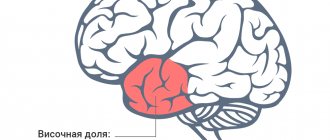Perhaps many have heard the phrase that we know a lot, but understand little. Indeed, often all learning consists of memorizing a set of loosely related facts. Such a system is very difficult to reconcile with the practical implementation of acquired knowledge. After all, it is the ability to apply theory that speaks of high intelligence. The ability to penetrate into the essence of what is written is much more important than mechanical memorization. Today we will look at some methods to improve the degree of understanding of texts, and indeed any information.
Key Trick
I believe you have already realized that key tricks open the way to new knowledge and give a head start in mastering it. They help overcome barriers that are inevitable in any learning. Some of the tricks relate to familiarity with the subject and the degree of self-confidence, others help to pay due attention to some part of the process.
Knowing the key tricks allows you to take control of the situation.
Someday, perhaps, you will begin to cope without them, but at first they will be your best friends.
The key trick may be to change your approach - for example, holding the pencil higher or separating the whites from the yolks when preparing an omelette. Or lie in concentration on any of the stages: for example, in order to learn how to ride a surfboard, you first need to practice jumping on it on the floor of the room. And to make a complete turn on a skateboard, first of all you need to turn your eyes and head in the right direction - and the whole body will follow them. The trick may lie in important details: if you want to extract fire by friction, all materials must be dry and located as far from the ground as possible - you can’t even imagine how much moisture there is at the surface of the soil. <…>
The key trick first creates a deceptive impression: it seems to you that since you know it, you will be able to do everything correctly. But then, as you get carried away, you understand: it won’t replace hours of practice, but it will help you overcome them faster and more pleasantly, and in the end you will get the desired result.
In some skills there are several tricks at once - as, for example, in drawing Zen circles: you can hold the brush higher, or you can put one hand on the fist of the other. Sometimes the key tricks are very small and seemingly insignificant. In street photography, the trick is simply to get close to your subject - and that alone will make your shots that much better.
Over time, you will probably reach a point where the key tricks are no longer so important to you. But by this point, they will have already done their job - they will involve you in the process so much that you will continue to improve the skill.
Training diction
To attract the attention of the person you need, convince him that you are right, agree with him on further cooperation, exert a certain influence on him and win him over, you must have perfect diction. Thanks to diction training, you will learn to correctly change intonation, clearly pronounce consonants and vowels, highlight important points with your voice, etc.
Diction training begins with proper breathing. If you breathe incorrectly, your voice will begin to break, you will take long pauses between words or sentences, because of which the meaning of the phrases you say will be perceived by listeners in a distorted form. This is why many famous speakers use speech or diaphragm breathing during one or another public speech, since they most often do not have enough normal breathing.
To learn how to use air correctly and restore it in a timely manner, you need to practice a specially developed system of breathing training. This activity requires a person to have iron willpower, great patience and perseverance, but it is worth it.
Once you have learned to breathe correctly, start working on correct pronunciation or diction. Turn on the recorder and read any text, then listen to the recording and evaluate your speech. Let a few people whose opinions you trust listen to the recording. Does your assessment match other people's assessments?
Analyze both your own opinion and the opinions of other people. Highlight the main shortcomings: pronunciation of vowel sounds without stress (weak position), incorrect pronunciation of soft sounds, loss or absence of certain vowel sounds, “crumpled” or “eaten” consonant sounds, incorrect connection of connecting consonant sounds, lack of clear pronunciation of whistling and hissing sounds and etc.
To improve diction, you should perform a set of exercises daily that are aimed at relaxing the muscles responsible for correct and clear articulation. Start with the easiest exercises and gradually increase their difficulty. Proceed to a more difficult exercise only if you have completely mastered the previous exercise. To maintain the results already achieved, do not forget to repeat basic exercises once a week.
We recommend: 11 effective exercises to improve diction in adults
Patting/Stroking Barrier (Counter Skills)
Many of the tricks that provide an initial advantage in mastering a skill involve overcoming the "patting/stroking barrier" (also known as the counter-skill barrier). You encounter it when you find that you need to perform some actions that contradict each other. The name comes from a well-known task: simultaneously stroking your stomach with one hand and patting the top of your head with the other. It would seem that there is nothing complicated here, but try it and you will see that it is almost impossible. However, this problem can still be solved if you focus first on one half of it, and then gradually connect the other.
We usually think of mastering skills in a very simplistic way: we think we just learn them, first one, then another. But in fact, the skills we already have can both help us master new ones and, conversely, slow down the process. We think that to learn something complex, like driving a car, you need to coordinate a number of different skills. But it is no less useful to look at them separately: do they interfere with each other? For example, changing gears makes it difficult to turn the steering wheel - it certainly doesn’t help. It is better to first bring each skill to perfection and automaticity independently of the others, rather than suffer trying to use them all at once. <…>
The skill barrier you encounter whenever you try to learn anything worthwhile is the brain's problem of coordinating neural pathways. And changing focus is not always easy: often, when a task overwhelms us, we panic and give up everything. "I just can't handle it!" - we say. Those who are naturally quick learners, when faced with difficulties, unconsciously concentrate on one element. This may make them a little pedantic, but real understanding cannot be achieved in a hurry. It’s important to be “out of time.” (I discovered for myself that if, while learning something new, I set aside two hours for a “lesson,” I very quickly forget about deadlines and the process turns into a flow. But if I give myself less time, I start to rush.) Here too A key trick helps - it reduces the conflict of skills and promotes their harmonization.
Once you are aware of the barrier, mastering the skill becomes easier. You concentrate your efforts.
Let's return to Zen circles. The barrier here is not too high - although it does stop people who have been convinced that they are “not capable of drawing” (or they have convinced themselves of this). The contradiction here is this: precise and neat lines require a slow pace, but the correct curve requires speed and skill. If you slow down too much, the circle will look like an amoeba. Speed up too much and you'll end up with a jagged egg - sort of like a cartoon character's hairstyle.
Some skills have a low tapping/stroking barrier and are easy to get started with. For example, if you build towers of stones, knowing the key trick, the barrier becomes obvious only at the moment of realization: the crazier the balance, the harder it is to continue building. You have to simultaneously find the tiny bumps and balance points and think about the finished tower. A successful balance point for three stones can destroy an already built tower of five. Moving a group of stones back and forth in search of balance, and then creating it for the next tier, is almost the same as patting yourself on the stomach and patting your head at the same time.
In other cases, this barrier turns out to be the main obstacle to mastering the skill as a whole. As you can probably imagine, the barrier to patting/stroking in juggling is quite high. Here you need to be able to almost simultaneously throw and catch objects with both hands separately. The trick is to focus on throwing first and then catching. By sharing and building skills, you develop neural connections, gradually improving your “autopilot.”
If you want, you can give your level of competence or level of focus a numerical rating. For example, you might get a “nine” for throwing and only a “two” for catching. This assessment of the building blocks of a skill (covered in detail in Timothy Gallwey's excellent series on the "inner game") is great at reducing the pressure of trying to master both skills at the same time. If it takes too much effort to overcome a barrier, the result is usually only disappointment. It is better to periodically return to the skill and revise the scores for each of the opposing skills. <…>
In Aikido there is a technique called hajime, which involves moving to a level higher than the desired one. "Hajime" means "to begin" in Japanese and involves performing each action as quickly as possible. No matter how bad you get, the main thing is to maintain maximum speed. This helps you get into a state of flow and turn off conscious thinking. Then the same movements should be performed as slowly as possible. This alternation increases awareness and the brain deeply learns the fundamentals of counteracting skills.
Opposing skills means that we need to use two parts of the brain at the same time. Our brain prefers to perform actions one at a time, but if we turn off conscious perception, it turns out that we can improve very complex skills that require different parts of the brain to work simultaneously. Conscious thinking (by which I mean verbalizing all the actions in your head and following those instructions) will ensure that you resemble a puppet. The sooner you feel a certain action and begin to perform it without thinking, the better.
Of course, guidelines can be helpful. When you learn to drive, your instructor may put markings on the rear window to help you park. But after a while you will develop an instinct and you will always know exactly where you are. For those who are getting acquainted with something for the first time, it always seems surprising, but in fact, we are all very good at doing some things by eye. In the 19th century, craftsmen could make perfectly round wheels, relying less on precise measurements than on their instincts. Doing something by eye means trusting your ability to use an opposing skill.
Exercises for training
Speech therapists advise training tongue mobility. To do this, you need to sequentially move your tongue into 4 positions: first to one cheek, then to the other, then move your tongue to the palate, and then try to move the tip as close to the root as possible.
There is also an equally simple way to construct correct speech. You need to take some object, for example: a house, a table, a spoon, a fork, a car. Start describing it literary, using a minimum of vernacular and filler words. At first, just a few minutes will be enough, but with practice the monologue will become longer and better.
General provision
Before you learn any skill, you need to give yourself the best chance of success. You need the right equipment or tools, time, and a willingness to learn. And don't rush. You might even think about how to use unproductive time (comedian and actor Steve Martin, after deciding to learn to play the banjo, placed one in every room of the house, even in the toilet). You must remove all obstacles from the path.
Sometimes it's the right tools that help you overcome the patting/stroking barrier. <…> In street photography, the barrier is the contradiction between the speed of shooting and the unstable position of the camera, which leads to a blurred image. You can overcome the barrier using a small camera that focuses very quickly.
In any case, the "right equipment" means the right one for you. The tools should inspire you to continue training.
Some people are attracted to film photography by the unexpected method of developing it using instant coffee and vitamin C - believe it or not, this composition really works. It may be a little more difficult than using a ready-made developer, but it's fun and unexpected.
When drawing Zen circles, it is very helpful to find a pen that you really like. Artists and illustrators usually have favorite tools. Shu Rayner typically uses Rotring pens, while writer and illustrator Dan Price uses Japanese Sakura markers. I love the Pentel brushes that manga artists use - I think they make drawing Zen circles even more fun.
But general provision does not only mean tools - it also means the environment and those around you. My daughter almost quit playing guitar, but when we changed teachers, she not only began to learn faster, but she became truly interested. The right teacher is very important. He doesn’t have to be a brilliant specialist - but let him make sure that you yourself want to improve in what you like. Just as doctors help the human body heal itself, teachers redirect our attention to help us learn for ourselves.
“Putting up” a vote
A well-trained voice is needed not only by actors, musicians and representatives of other creative professions, but also by those people who want to learn how to speak beautifully and clearly express their thoughts.
To become the owner of a voice that has ideal strength, range and timbre, you need to systematically train it. Clear and loud recitation of poems, prose poems, elegies, fables, or any other texts that evoke positive emotions will help improve your voice power.
To expand and “tune” the range of your voice, perform special text exercises every day in the lowest or highest tones. Depending on your goal, your voice should become lower or higher.
The timbre of the voice depends on the additional tone (overtones). The sound of the additional tone resembles a kind of echo. An additional tone occurs when the sound of your voice is reflected from the larynx, skull, chest cavity, or the surface of any other natural resonator.
Result
Any skill involves some kind of successful result - without it we would not want to continue practicing. The very fact that a skill, be it juggling or proving the Pythagorean theorem using origami, seems difficult gives you an incentive, regardless of your motivation (you want to look good in other people's eyes, prove something to yourself - or both). other) it must have a clear, unambiguous and achievable successful result. Therefore, cooking in general cannot be considered a skill, but cooking an omelette can be considered; driving a car - no, but turning using the handbrake - yes; kayaking or kayaking is a no-no, but performing an Eskimo roll is a no-brainer.
The more obvious and visible the result, the more praise you usually receive. We all crave attention - it is a vital resource. From an evolutionary perspective, humans require the help of others to survive—always, not just in early childhood. In the wild, it is much easier to survive in a group than alone, and the attention of others indicates that you belong to a “tribe.” Of course, the need for attention may go beyond the norm, but some amount of it is really necessary. Even our own attention to ourselves is already a result, a pleasant warm feeling that we have achieved something, even if no one else knows about it.
For some people, public recognition can be a major motivating factor. Trainer and educator Steve Chapman publicly announces his actions and uses fear of humiliation as motivation. This fear overcomes laziness and absent-mindedness - here is a successful example of using one negative factor to combat others.
A significant stimulus and at the same time result can be the feeling of usefulness.
If you can cook a delicious meal, entertain someone, throw a party, or fix something, then you can perceive these actions as rewards in themselves.
Skill necessarily brings a feeling of achieving a result, even a small one. When drawing Zen circles, I find that I often fill the entire page with them, but try not to let them overlap each other. The bubble effect is an added pleasure.
Beautiful speech is another path to success
A successful person must be able to speak beautifully. Oratory skills are necessary for negotiating, establishing contacts, and will also be useful in your personal life. Fluent, competent speech will give confidence, increase self-esteem, and allow you to have a convincing effect on your interlocutor.
What helps you learn to speak correctly? Various techniques will come to the rescue.
Establishing correct breathing
If the diaphragm is poorly developed, then it is difficult for the speaker to speak clearly and beautifully. It is necessary to do breathing exercises:
- Shoulders motionless, short, light inhalation to expand the lower chest. At the same time, the stomach rises slightly.
- This is followed by a smooth exhalation.
- First, you will have to control your breathing by placing your palm on the diaphragm.
Proper breathing will allow the air to be evenly distributed, which will make speech pronounced clearly and concisely.
Diction development
It is more difficult for an adult to change an already developed diction. To develop intelligible pronunciation, you can use different techniques:
- Tongue Twisters. Repeat every day, first one tongue twister, until you reach automaticity, then another.
- Breathing technique. Inflate the balloons by exhaling vowel sounds for a long time.
- Recording on a voice recorder. Work on conversation defects until they disappear.
- Articulation
Gymnastics will help make judgment expressive and clear
Do the exercises 10-15 times.
- Smile and say the sound “i”. Start with 5, work your way up to 25 seconds.
- With your mouth open, move your jaws back and forth.
- Cross your arms over your chest. Bend your torso forward, pronounce the sounds: “o, u, s.” Gradually lower your voice and draw out your vowels.
- Keep your mouth open and use the tip of your tongue to touch each tooth in turn.
- Relax your tongue and lick your lips.
- Place your tongue on one or the other cheek. Repeat the exercise first with your mouth open and then with your mouth closed.
Repeatability
You want a skill that can be repeated endlessly, which means it shouldn't be too boring, inflexible, or unchangeable.
Most importantly, it should allow you to continually improve. By repeating it over and over again, you will see your own progress. And this is truly amazing.
I came up with this activity for myself - every time I come to a coffee shop, draw a cup, spoon and saucer. Sometimes I carefully draw out all the details and create a real still life. And sometimes I’m in a hurry and make a sketchy sketch in just a minute. It doesn't matter; the main thing is that I continue to do this, repeating the same simple exercise over and over again. I feel my self-confidence increase and I see that my drawings are getting better - I'm starting to notice things I didn't notice before. But even when I’m in a hurry, I don’t fall into the panic that grips us when we are afraid of doing something wrong or not finishing a task for one reason or another. These small inner fears can hinder any attempt to create or try something new, even if you do it only for yourself and without any force. Pre-set time frames and repetition help exorcise those demons of self-doubt.
For marketers, the holy grail is to introduce a playful element: it is repeatable, but always engaging because the result is new every time. Too much predictability leads to boredom. No new omelet is exactly the same as the previous one, just like a juggling act or a Zen circle - and there is always a chance that it will turn out better next time. This is the nature of the game. For it to arise, the activity must include the possibility of repetition: writing a novel is not a skill, but a short story of a hundred words is. Climbing Everest - no, but climbing the wall of the local climbing wall - definitely.
Use graphical display
Most people perceive information visually. It is much easier for us to understand something if it is shown in a picture. The use of charts, tables, graphs and diagrams greatly helps in understanding the text. Such tools best reflect the structure of knowledge and show connections between individual facts. There are many similar methods, and we list some of them below:
- The mind map method is a world-famous invention by Tony Buzan, which has become one of the most widespread intellectual tools. Excellent for graphic display of any type of text, it provides clear structure and teaches you to highlight the main thing.
- Flowcharts are great for presenting text that describes sequences of actions or algorithms. They allow you to clearly clarify certain conditions under which certain steps can be performed.
- Tables are useful for comparing and evaluating certain information. They allow you to compactly place a large amount of data, which simplifies their processing.
Experimental Features
Mastering any skill is a mini-laboratory, a place for countless experiments that expand and deepen knowledge about the subject. Experiments are not the property of science; it has simply appropriated this naturally human form of curiosity.
Through experimentation, you can add flavor to repetition. You can improve exponentially, achieving things that would take too long to “just practice.” A long time ago I decided to master the J-stroke, which is used when you are the last or only paddler in a canoe. This technique is called that because the oar, when viewed from above, should describe a figure similar to the letter J in the water. I did all the reading and tried it every time I found myself in a boat on the river. But nothing worked for me. Then I spoke to a specialist, my cousin Simon, who used to be on the Olympic canoe team. He modestly reported that he himself usually performed C-rows. I considered this an invitation to experiment and decided that instead of following instructions exactly, I could have fun with C-, L-, J- and maybe even Z-strokes. And I immediately began to do better - I found my own way to row more powerfully.
Each skill can be turned upside down and backwards, getting joy from it. This is how they master variables - they learn how much they can change values and how they influence each other.
One of the biggest pitfalls of performance-based learning is that the process goes too quickly and you don't have time to experiment and fool around.
Keep drawing circles, sculpting clay skulls and doing bike tricks, but forget about the end result and just learn for real.
Robert Twigger is a British writer, poet, philosopher and traveler. By his own admission, from early childhood he was interested in everything around him. Therefore, Twigger studied a lot and achieved success in various fields. The book "The Angry White Pajamas", in which Robert described his experience of studying aikido in Tokyo, brought the author the Somerset Maugham Prize. Twigger participated in the capture of the longest snake in the world and in the creation of a documentary film about this adventure. In 2009–2010, Robert led a walking expedition whose goal was to cross the Great Sand Sea in the Sahara (length: about 700 kilometers).
Twigger proves by his own example that you can learn any skill and improve it. In the book “Micro-master classes”, he shares with readers his many years of experience - detailed instructions on how to master any knowledge and skill.
Buy a book
Expressiveness and Confidence
You cannot express your thoughts beautifully by wagging your tongue sluggishly. Just remember: at least once have you admired an insecure person muttering under his breath?
Another thing is charisma. Posture, lively voice, correct accents and no confusion. To bring yourself closer to the model of an ideal speaker, you can use the following tips.
#1. During a conversation, do not concentrate on yourself, do not think about your appearance. Focus on what you want to say.
Visualize the object, savor your knowledge. At first you will have to make an effort to hold onto your thoughts, but then it will be automatic.
With this method, you will reduce your anxiety level and become fully invested in the conversation. At one point in time, the brain can only hold one thought , and when you forget about the possibility of making a slip of the tongue or being blunt, the words will flow out on their own. This happens because the brain completely focuses on the conversation , which means it selects sentences faster.
#2 Voice recorder / camera
Record your speech on electronic media so you can listen to it from the outside. First, the voice will seem unfamiliar, second, you will immediately hear your shortcomings.
It can be:
- Parasite words
- Long pauses
- A large amount of “water” in conversation
- Uncertainty and weak voice
Once you recognize the problem, it will be easier to deal with it. You'll learn what to focus on so you don't try to improve everything at once.
#3 Feel the mood
- Say goodbye if the person wants to leave
- Change the subject if the person is bored
- Show your knowledge if there is an important person in front of you
Be on the same wavelength with the person so that he remembers you as a pleasant interlocutor. Among the annoying and boring storytellers, you will stand out.
#4 Don't try to please
The best confidence is not being afraid to be real. You will only harm communication if you bend and flatter.
Naturalness inspires trust . The simpler and more relaxed you are with yourself, the faster you will join the conversation. And the easier it will be for you to express the desired thought.
#5 Magnetism
Your speech should attract attention in every way. Somewhere you need to stop, somewhere you need to increase the volume, somewhere you need to insert a digression. Don't let the person fall asleep, let him feel your story.
Here are some quick ways to brighten up your conversation:
- Gesture actively
- Include facial expressions
- Insert jokes or stories
- Make accents
- Break your speech into small paragraphs
The most important thing is don’t be shy! If emotionality comes from within , then you will only win. This will show your honesty and openness, which will play into your hands in the future.
#6 And finally
You won't learn to ride a bike without falling. Don't be afraid of mistakes and don't focus on failures. The interlocutor has his own problems , and he doesn’t care about your passages.
The person will either understand you or smile. But in any case, he will forget about it in 5 minutes.
How to learn logical thinking
Thinking and speaking logically is perhaps the most difficult thing in a conversation. Logical thinking makes it possible to separate the main from the secondary in a conversation and fully analyze the situation.
- If the thought has not yet matured in your head, do not start a conversation.
- Less attention to detail. Speak briefly, clearly, to the point. Excessive verbosity makes it difficult to understand what is being said.
- Try not to lose the thread of the conversation by being distracted by other things.
- Don't speak in fragments of sentences. Do not think that the interlocutor knows what you want to convey to him; it is better to immediately speak clearly and clearly.
- With a poor vocabulary, it is difficult to speak logically. Expand your vocabulary and know how to use it.
- Write down beautiful phrases from the classics, re-read them, memorize them in order to insert them into conversation.
- Communicate with people who have a broad outlook, correct, beautiful speech. When communicating with individuals with a poor vocabulary, you will never learn to conduct a beautiful dialogue.
- Train your memory. Remember other people's phone numbers, birthdays, add up car license numbers, solve crosswords.
- Write down your reflections in a journal after watching the film. Describe with feelings and emotions. A week later, describe the film again. Compare both descriptions, highlight mental errors, work on them.
- Participate in discussions on forums, even online. This will help hone your oratory skills.
Dear friends, knowing how to learn to express your thoughts correctly, very soon you will become a brilliant interlocutor, attracting people like a magnet.











